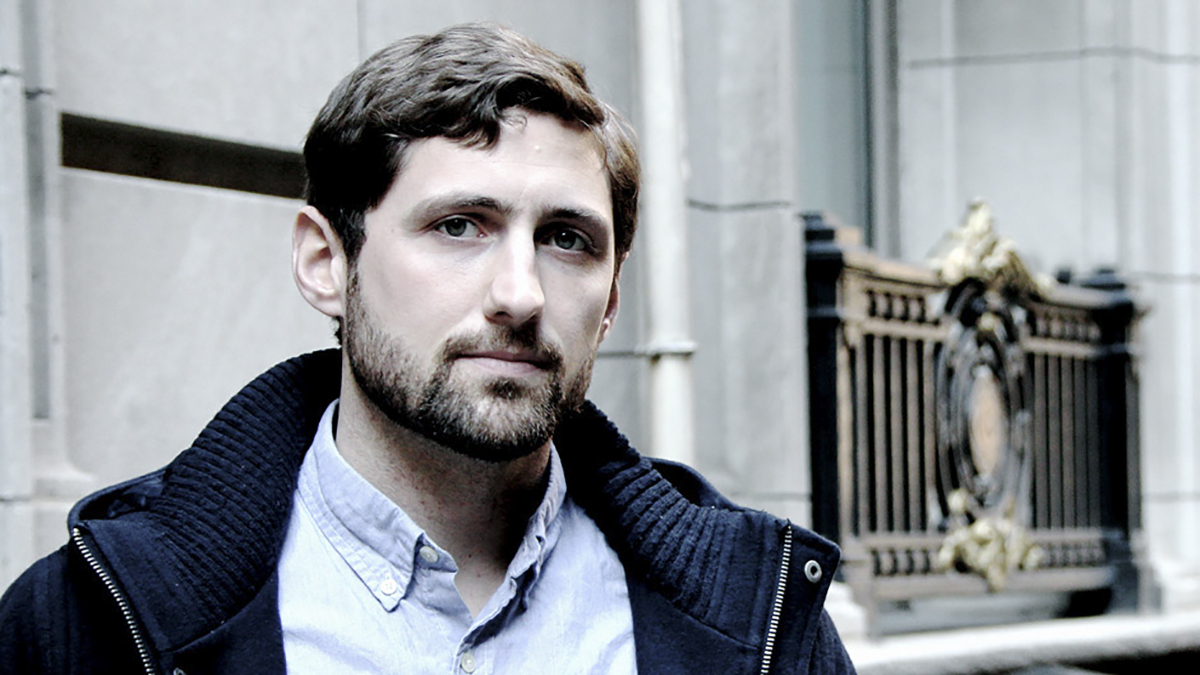On Aug. 14, 1936, Franklin Delano Roosevelt took the Amphitheater stage to give his famous “I Hate War” speech at Chautauqua Institution.
At 10:45 a.m. Monday in the same venue — 80 years and a day later — author Phil Klay will discuss war and its multifaceted meanings in the modern world.
“I’ll do my best, but I don’t think my speech will be as historic,” Klay said.
Klay is the author of the National Book Award-winning Redeployment, a collection of short stories inspired by his time serving in the Marines. He’s returning to the grounds after receiving The 2015 Chautauqua Prize last year, and his lecture will open Chautauqua’s Week Eight discussions on “War and Its Warriors: Contemporary Voices.”
Klay said his talk is inspired by the reflections he’s had about his service in Iraq. He lived near a medical hospital when he was there in 2007, and he said the conversations he had with the medical staff made him think about the broader context of the American way of warfare.
“We have a distinct relationship in the country to how we do war, which is related to the nature of the country and the things that make our country the way it is,” Klay said.
As he’s gotten older and had more time to think about his experience, Klay said his own relationship to war stories has changed.
“The things that I thought were the most important aspects of what I saw, or the things I saw in war that I thought were worthiest of being heralded — I realized that maybe I’d been looking at them in the wrong way,” Klay said.
Those reflections have given him a way to think about how the American military is structured around a set of morals and values.
Klay said planning for his lecture made him think about the historical context of Chautauqua Institution, a place that was rising to prominence after the end of the Civil War.
That led him to revisit the work of the German-American philosopher Franz Lieber, author of the Lieber Code. The Lieber Code set out laws of warfare and was issued by Abraham Lincoln during the Civil War, Klay said, and laid the foundations for the Geneva Conventions.
Lieber also gave a series of lectures where he discussed the effect war has on national character, a theme Klay said is still relevant.
“I think that’s another reason that it’s important to talk about war: We actively shape the moral effect of what that war will have on us as a country,” Klay said.
Current events have also made Klay think about how the nation talks about war, he said.
When looking at the current presidential election and the way war is discussed now, Klay said, there are promises being made to the American public that show “we are so distanced from the true nature of how wars are waged that it’s actually very dangerous.”
“Honestly, some of the discussion that you get about war when you turn on cable news would be embarrassing coming from a relatively well-informed third-grader,” Klay said.
It’s one’s responsibility as a citizen to think about and try to understand war, even if it is unfamiliar or uncomfortable, Klay said.
“If we have a shallow understanding of war, if our attention is only fixed when there’s a dramatic moment of violence — without any understanding of the principles and strategies shaping how we view young men and women’s lives overseas — we, as a country, are not going to be capable stewards of our nation’s military,” Klay said.
Klay said Americans can’t avoid thinking seriously about war because it is a moral obligation. However, it doesn’t mean one has to be pro-war or anti-war, he said.
“It does mean that we must think about this in a deeper way than certainly I think we’re doing currently,” Klay said. “Not just understanding how the military works, but how it’s meant to function in concert with the principles and the values that actually go back to our founding.”
Those principles and values are an “ultimate source of strength” for the United States, Klay said, and understanding them in terms of the military and America as a republic is “essential.”
Klay said he hopes the audience will come away with a better sense of their relationship as American citizens to the values of warfare, as well as a willingness to seek out a deeper understanding of war.
“That commitment needs to be reconfirmed with every generation,” Klay said.





